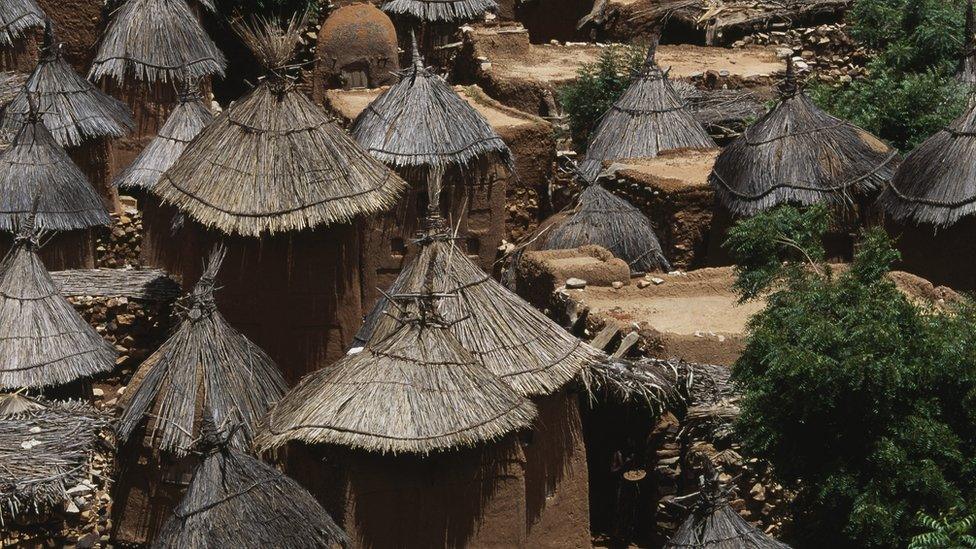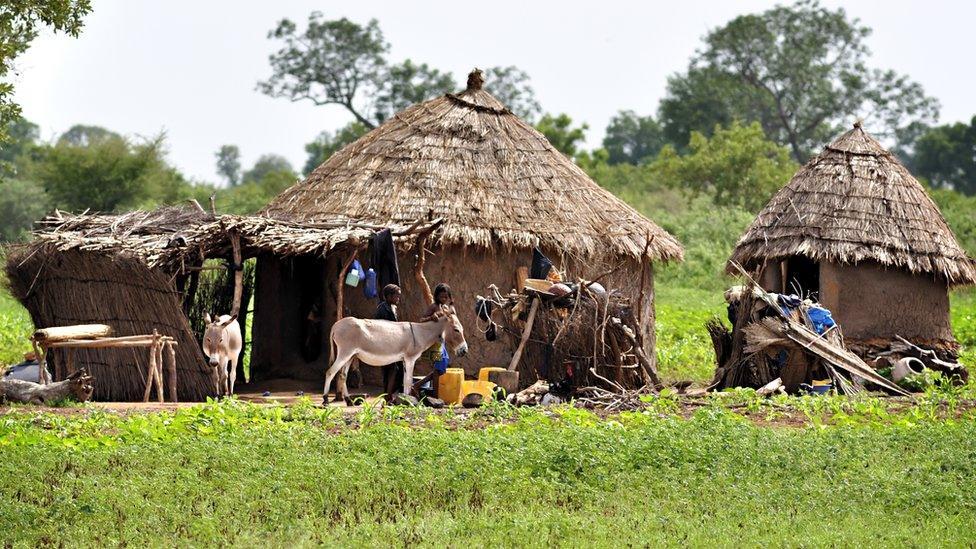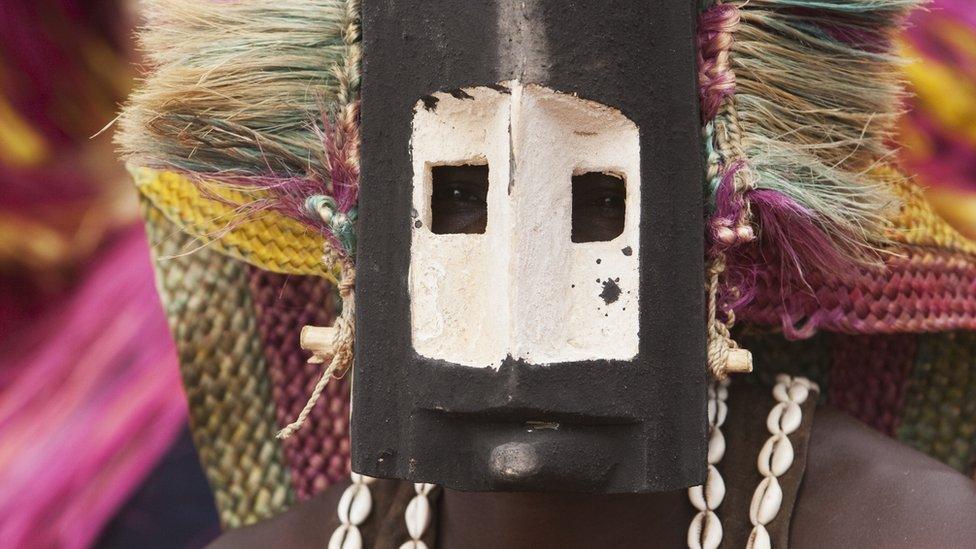Mali village attack death toll revised down to 35
- Published

Dogon villages often follow a traditional way of life
The number of people killed in an attack on a village in central Mali has been revised to 35, down from nearly 100, officials have said.
Monday's attack happened in Sobame Da, inhabited by the Dogon ethnic group, in the Mopti region.
Officials initially said 95 people had been found dead, many with their bodies burned.
Now the government says that initial figure corresponded to the combined number of dead and disappeared.
There have been numerous attacks in Mali in recent months, some by jihadist groups, others between Dogon hunters and semi-nomadic Fulani herders.
Among the 35 who died were 24 children, the government said. Six people have been taken in for questioning, officials said.
Following the attack the justice minister announced an investigation and the UN peacekeeping mission in the country deployed a special human rights fact-finding mission to assist authorities.
A local official from near where the attack happened said he believed it was Fulanis who descended on the Dogon village in a possible reprisal attack.
For now, the government has described the perpetrators as suspected terrorists.
What is the Dogon-Fulani conflict?
The Dogon people have lived in central Mali for centuries and follow a largely traditional way of life as settled farmers.
Many Fulani, on the other hand, are semi-nomadic herders who move across large distances in West Africa.
Friction between farmers and the roaming herders over resources is long-standing – but clashes between them have increased since a militant Islamist uprising in northern Mali in 2012.
Both sides accuse the other of carrying out attacks amid the unrest.
The Fulani, a largely Muslim ethnic group, have been accused of having links with the Islamists. For their part, the Fulani accuse a Dogon self-defence association, Dan Na Ambassagou, of attacks on them.
- Published24 March 2019

- Published25 March 2019
